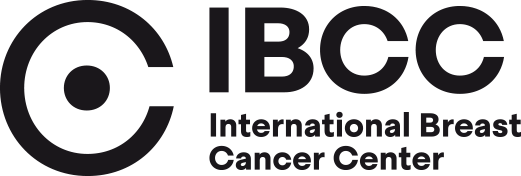The clinical nurse is an indispensable professional in the care of breast cancer patients, and on the occasion of International Nurses Day, which is celebrated on May 12 under the slogan “A Voice to Lead—A Vision for Future Healthcare”, their work should be understood and acknowledged.
Beyond their technical competences and duties, the nurse is the companion par excellence of the breast cancer patient, their family and caregivers throughout the oncological process. From the tough moment of diagnosis, the nurse is with the patient to accompany them throughout the entire process. The nurse will be the patient’s qualified travel companion.
Day to day during this process, they will perform four types of function: care, teaching, coordination and communication. This professional is responsible for providing comprehensive care to the patient and their loved ones based on a holistic care plan, and for guaranteeing continuity of care with proactive follow-up, by telephone, email or any other means necessary to fulfil this plan.
To carry out their duties, the nurse acts as a liaison between patients and the various different professionals, coordinating them and ensuring that the patient’s entire oncological process is as efficient as possible. They also educate the patient and loved ones on their treatment and on the management of side effects, thus ensuring good adherence to treatment.
Their best tool to perform all these tasks is communication, the key to building therapeutic and trusting relationships with the patient, family and primary caregivers. One of the main objectives is to give emotional support to the patient and their family throughout process of the disease . We asked Silvia Santiago, the IBCC nursing coordinator, to tell us about her experience:
“I’ve been asked to reflect on our day, Nurses Day.
The first thing that comes to mind is, what does a nurse do?
We care, we care and we care for sick people.
I’ve heard people say, ‘throughout your career, you will gradually toughen up and things won’t affect you so much…’ What a lie! It’s the complete opposite! The more years in the profession, as we grow as people and as professionals, I have noticed that we tend to become more sensitive and that things affect us more; and you take your patients ‘home’ with you. I think about them outside of my working hours, yes, and I don’t mind that. Is there anything more important in life than the relationships created between people? Even if it’s in the workplace, even if you get paid for it.
Empathy, that’s the key to success in every human relationship.
Empathy is defined as the ability to perceive, share, and understand what another person may be feeling.
Every day that I meet a patient who has been diagnosed with cancer, I want to take care of them, with everything I know and with everything my empathy tells me; because, if I didn’t empathize with them, and with those around them, I wouldn’t be doing a good job.
When you put yourself in the patient’s shoes, and in the shoes of their partner, their parents, children, friends…that’s when you understand the suffering, the concerns of your patient and of those around them, their need for honest support, for truth, for people they can trust.
And it’s funny that, for everything you give in this long process, you receive a lot more. Shared gratitude, sincerity, the best of each person pushed to the limit by the disease.
What we get in return from our patients is empathic ammunition for those that follow, and for us in our lives.
From my perspective, now, right now, in these last few months, my message is this:
EVERYTHING PASSES, good and bad, EVERYTHING PASSES.
So, to those of you who are currently in treatment, I want to send you a lot of encouragement, because this will also pass, and you will be well again.”
